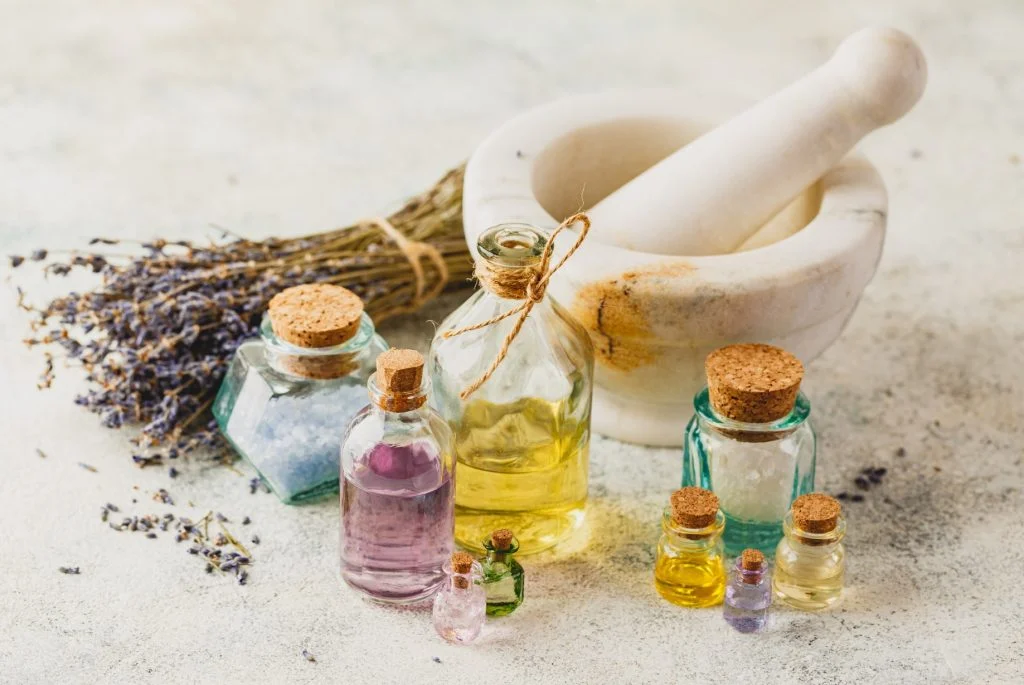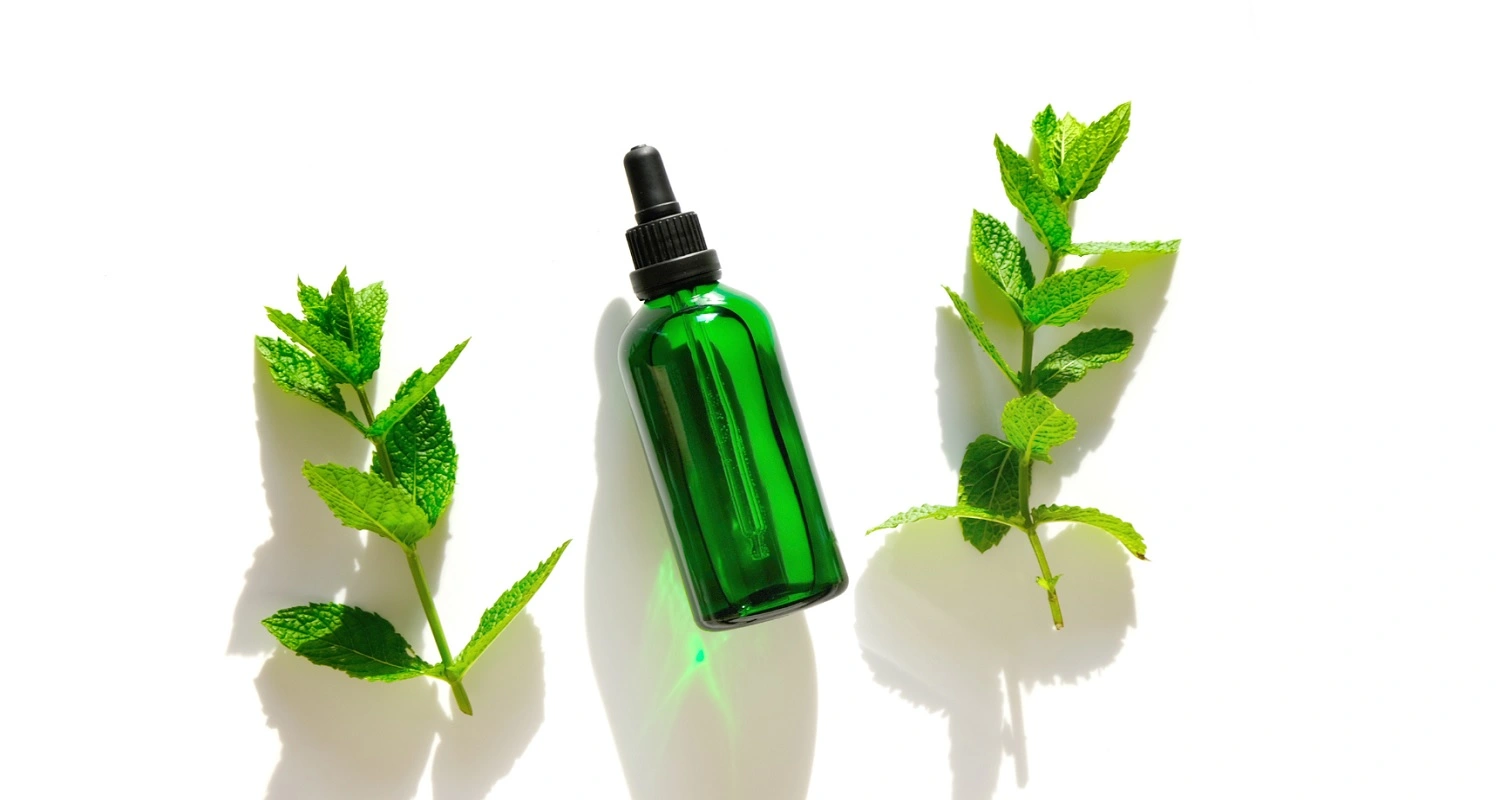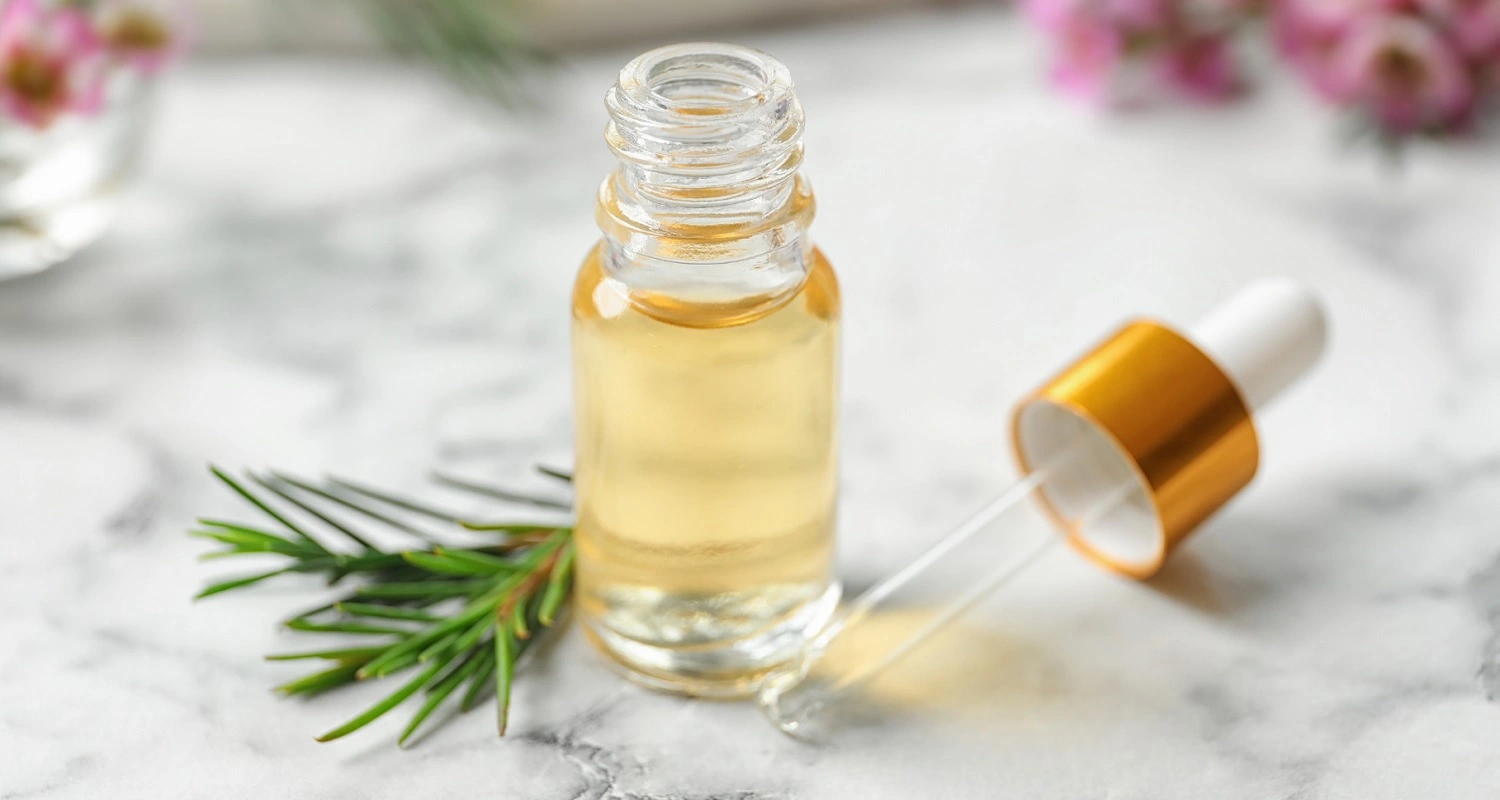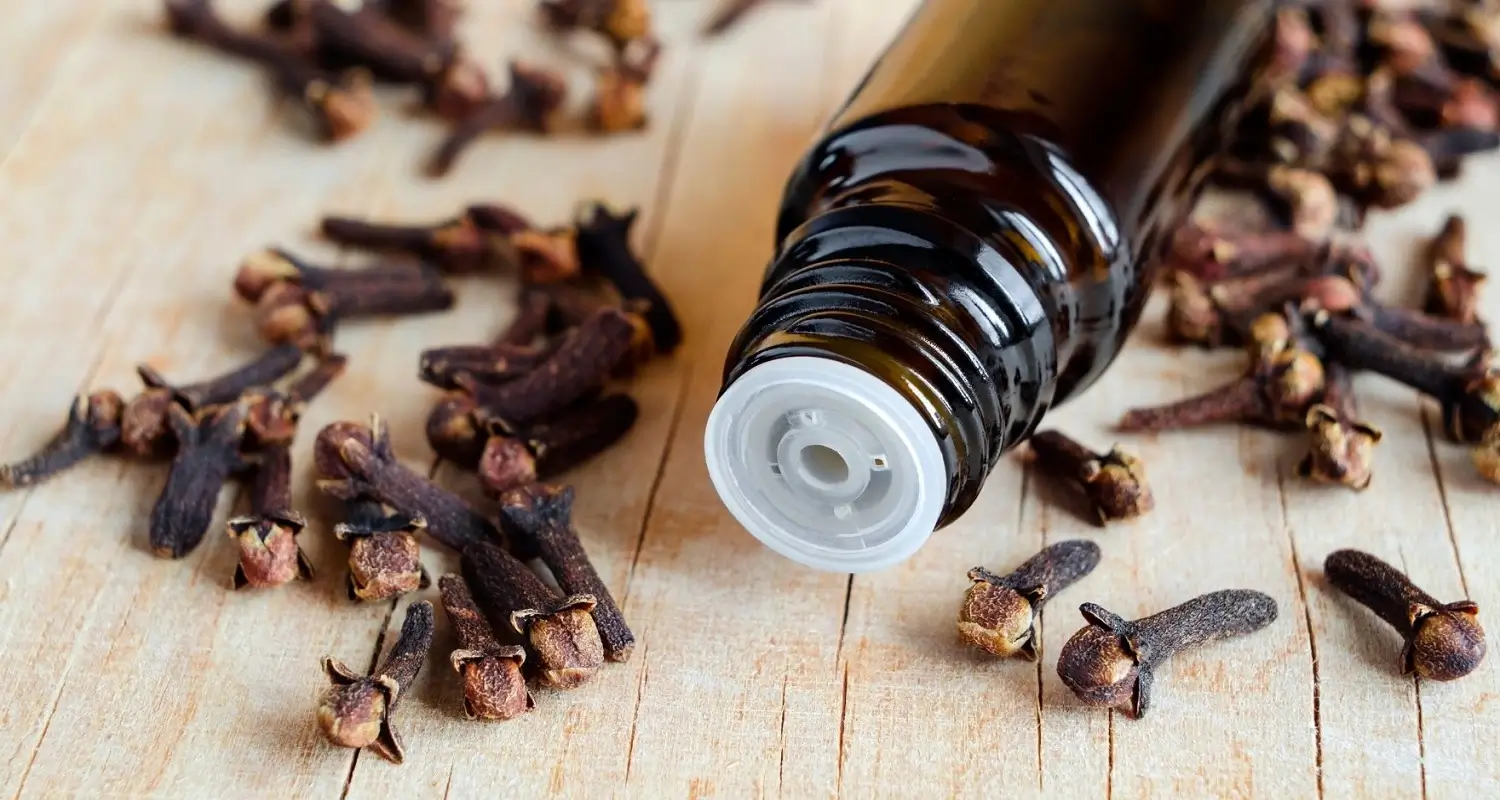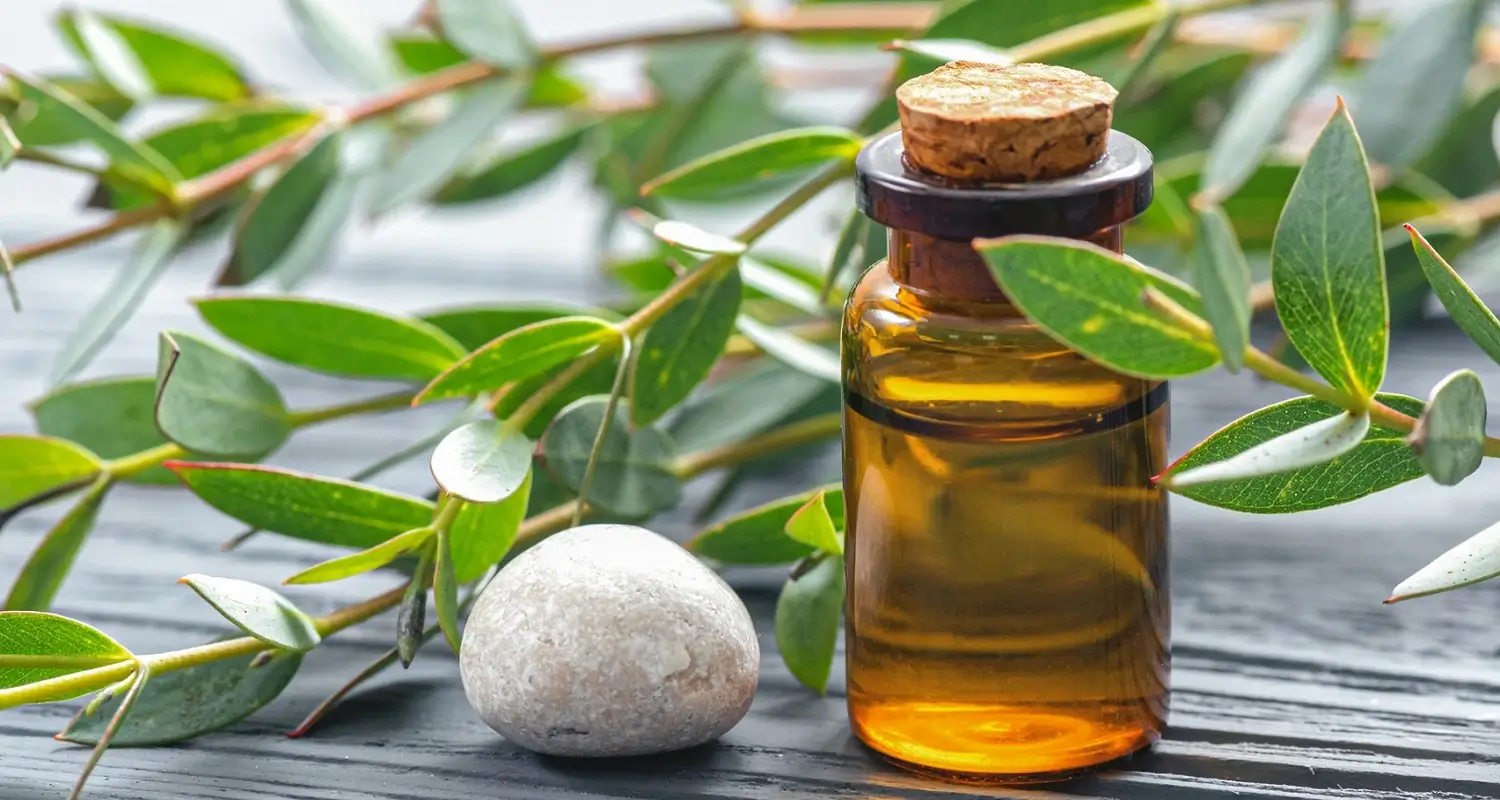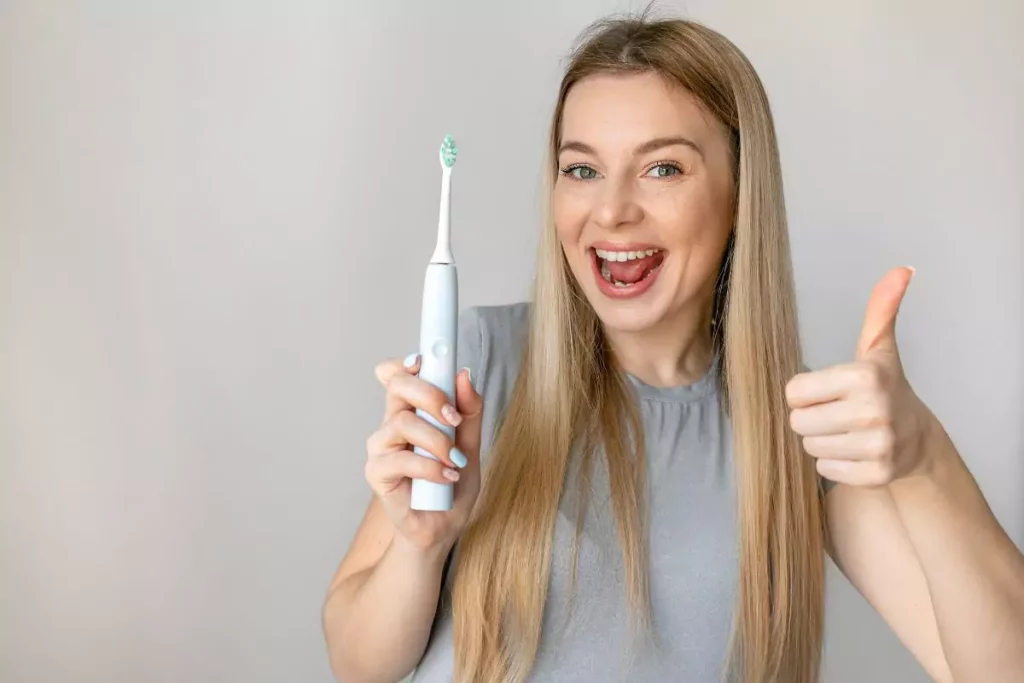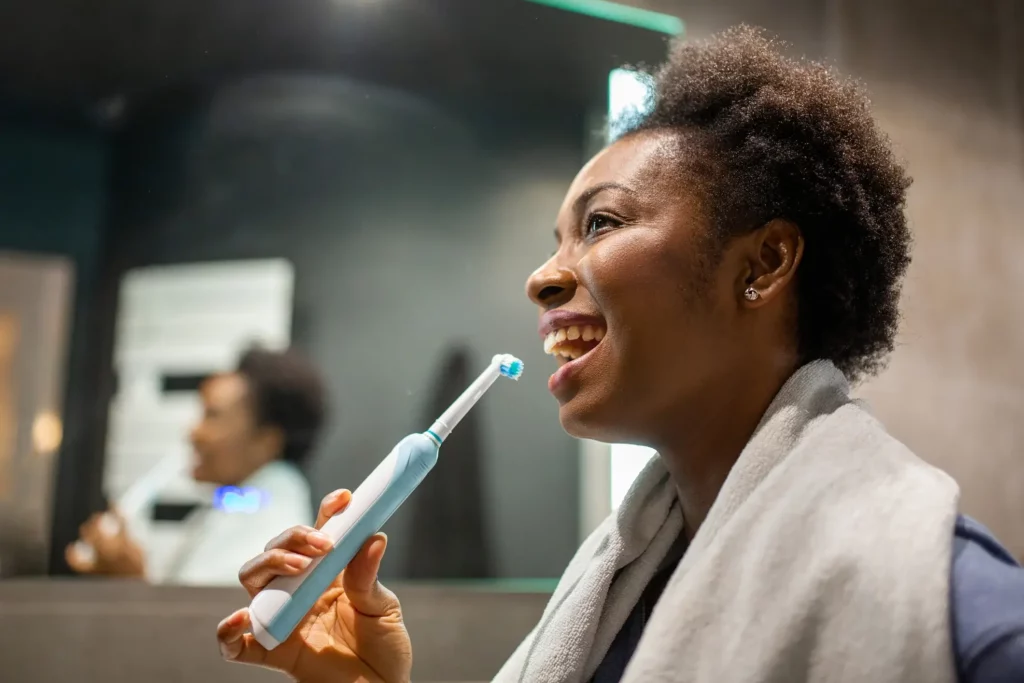Essential Oils for Teeth and Gums: Complete Guide
Good oral health is essential for our well-being as it affects our mental and social health. Oral health plays an important role in preventing systemic diseases, and many oral diseases, like periodontitis, are linked to chronic illnesses. In recent years, there has been a notable increase in interest in natural and DIY dental care solutions motivated by the potential risks of certain ingredients commonly found in everyday products that may be doing us more harm than good.
Essential oils are a staple in holistic and natural medicine due to their antimicrobial and antibacterial benefits. The need to avoid antibiotics due to the global issue of antibiotic resistance has led to increased use of essential oils for teeth and gums, complementing or even replacing conventional methods.
What Makes Essential Oils Beneficial for Oral Health?
Essential oils have gotten their name, “essential”, because they were assumed to trap the essence of a plant. They are volatile aromatic solvents containing hundreds and thousands of compounds. Their main properties – antiseptic, anti-inflammatory, and antibacterial – are attributed to their ability to damage the cell membranes of different bacteria and fungi.
The ability of essential oils to kill and prevent bacterial growth in the oral cavity helps conditions like gum disease, tooth decay, and halitosis (bad breath). The oral health benefits of essential oils don’t stop here! They can also reduce gum swelling and inflammation and relieve toothache.
More people are embracing a natural approach to dental care to eliminate the exposure to chemicals found in oral care products, which often are accompanied by side effects either local or systemic. The healing power of essential oils is easily accessible to everyone, so let’s take a look at the top essential oils for easy at-home dental remedies.
Top 5 Essential Oils for Dental Health
Peppermint oil
This is a very popular essential oil derived from M. piperita. The key compound of peppermint oil is menthol, a frequent ingredient in dental care. It is found in products such as toothpaste, mouthwashes, and chewing gum due to its ability to freshen the breath and provide a cooling sensation. It has a mild analgesic property and can be used as an at-home dental remedy to soothe toothache or gum pain.
Tea tree oil
An essential oil derived from the leaves of the Melaleuca alternifolia tree, it is highly celebrated for its antibacterial and antifungal properties. Commonly used in skincare to fight acne-causing bacteria or haircare to fight dandruff, tea tree oil can be found in many DIY dental care solutions. Due to its powerful antibacterial benefits, it can prevent gum disease, decrease tooth decay, and reduce plaque buildup. One study shows that it may also have antifungal activity.
Clove oil
Derived from clove buds, this oil is a widely used ingredient in many dental products. Eugenol, a natural compound found in clove oil, acts as a local anesthetic and can be used to alleviate a toothache. In fact, eugenol is part of emergency dental medications in case of pain episodes. In addition, clove oil has antimicrobial properties; it is found in dental filling materials or cements to prevent bacterial growth and secondary infections.
Lavender oil
Commonly used in aromatherapy, lavender oil is known for its anxiolytic benefits. This essential oil has not been as well studied as the others, but it has shown good antimicrobial activity in the oral cavity.
Eucalyptus oil
One of the main properties of eucalyptus oil is its ability to combat oral pathogens responsible for plaque formation and tooth decay. Additionally, eucalyptus oil supports gum health and may help with gum swelling and pain.
How to Use Essential Oils for Teeth and Gums
Using essential oils for teeth and gums is a valuable and natural addition to your oral care routine. Here are some DIY dental care solutions and recipes if you are looking for a more holistic approach to dental health:
1. DIY mouthwash: combine a few drops of tea tree, peppermint oil, and/or eucalyptus oil for antimicrobial benefits. Swish it around the mouth for 20-30 seconds and spit it out.
2. DIY toothpaste: mix some coconut oil with a few drops of clove and/or eucalyptus oil in water and add a bit of baking soda to create a paste. Use as a toothpaste for its antibacterial and tooth whitening benefits.
3. In case of tooth pain, soak a cotton ball in clove oil and apply it to the affected tooth. We have a comprehensive guide about “Essential Oils for Toothache“. Our guide reveals how to naturally soothe pain and enjoy a healthier, happier smile
Some safety tips:
● Always dilute the essential oils in water or carrier oils before use.
● Always patch test beforehand.
● Don’t ingest these oils.
● In case of a reaction, consult your dentist.
Precautions and Recommendations
Using essential oils for teeth and gums can be beneficial to your oral health, but it’s very important to choose quality products. Buy from reputable brands known for their purity to ensure that you are using oils free of additives or contaminants.
It’s important to be aware of potential adverse effects when using essential oils, making it crucial to use them in moderation:
● Digestive issues are possible such as heartburn, nausea, and vomiting, especially if the oil is ingested without being properly diluted.
● Symptoms of fatigue, headaches, and dry mouth can occur when consuming high doses of essential oils.
● Allergic reactions and toxicity can happen, including skin rashes, hives, blisters, and a burning sensation if essential oils are applied directly to the skin.
● Damage to teeth and gums may occur resulting in symptoms similar to those on the skin when the oils are applied directly in the mouth.
● Risks of serious complications like poisoning, seizures, as well as kidney and liver damage.
As general recommendations, here are some instructions for handling essential oils:
● It’s essential to wash your hands thoroughly after touching essential oils, avoiding contact with eyes, nose, ears, and the ano-genital areas.
● It is recommended not to use essential oils during pregnancy unless under the supervision of a healthcare professional.
● Refrain from using essential oils in children under 3 years of age.
Even with quality oils, it’s essential to use them with caution. Patients with conditions such as gum diseases or infections should consult with a dentist before incorporating essential oils into their oral health routine as they may exacerbate existing symptoms.
The Science Behind Essential Oils and Oral Health
Essential oils have been used for centuries due to their myriad of health benefits. In oral care, essential oils are not only used as a natural solution to dental care but they are often found in the formulations of different oral care products and materials used in dental offices due to their science-based effects on gums and teeth.
Conclusion
Oral health plays a significant role in our general well-being. Oral diseases like periodontitis and tooth decay are among the most common, associated with pain, discomfort, and low life quality. Essential oils mentioned in this article have been shown to improve oral health and are a valuable addition to your oral care routine.
Frequently Asked Questions
Which essential oil is best for dental health?
Clove essential oil is particularly prominent in oral health. Its effectiveness is widely acknowledged, with cloves being a traditional remedy.. In many families, it is common to suggest placing and holding a clove on the affected tooth as the first response to pain.
How do you use essential oils for teeth and gums?
Optimally, incorporate essential oils into your dental routine by adding them to your tooth-brushing regimen twice daily and/or concocting a rinse using water mixed with one or two drops of the oil. If necessary, the diluted oil can be directly applied to the gums for targeted relief.
Is It safe to brush my teeth with essential oils?
Yes. Add 5-10 drops of your preferred essential oil to one cup of water. Gargle with one tablespoon of this solution, then expel it as you would with a conventional mouthwash. To combat tooth decay and plaque, apply 2 drops of a selected essential oil directly to your toothbrush.
Is it safe to use essential oils in your mouth?
It’s important to understand that essential oils are NOT intended for internal consumption, except when used in mouthwash or toothpaste formulations. Even in these cases, it’s crucial to spit out the mixture after use and thoroughly rinse your mouth.
Which oil is utilized by dentists?
Clove oil is valued for its content of eugenol, a compound known for its anesthetic and antibacterial properties, making it potentially beneficial for alleviating toothaches or dental pain. The use of eugenol, derived from cloves, dates back to the 19th century in the field of early dentistry.
Share:
References
1. Benabdelkader T;Zitouni A;Guitton Y;Jullien F;Maitre D;Casabianca H;Legendre L;Kameli A; (n.d.). Essential oils from wild populations of Algerian Lavandula stoechas L.: Composition, chemical variability, and in vitro biological properties. Chemistry & biodiversity. https://pubmed.ncbi.nlm.nih.gov/21560242/
2. Dagli, N., & Dagli, R. (2014, June). Possible use of essential oils in dentistry. Journal of international oral health: JIOH. https://www.ncbi.nlm.nih.gov/pmc/articles/PMC4109163/
3. Dagli, N., Dagli, R., Mahmoud, R. S., & Baroudi, K. (2015). Essential oils, their therapeutic properties, and implication in Dentistry: A Review. Journal of International Society of Preventive & Community Dentistry. https://www.ncbi.nlm.nih.gov/pmc/articles/PMC4606594/
4. In vitro antifungal activity of the tea tree (Melaleuca alternifolia) essential oil and its major components against plant pathogens. Academic.oup.com. (n.d.).
5. Person. (2021, May 19). Four essential oils that can help with a toothache. Healthline. https://www.healthline.com/health/dental-and-oral-health/essential-oils-for-toothache#takeaway
6. Singh, I., Kaur, P., Kaushal, U., Kaur, V., & Shekhar, N. (2021). Essential oils in treatment and management of dental … Essential Oils in Treatment and Management of Dental Diseases. https://biointerfaceresearch.com/wp-content/uploads/2021/11/20695837126.72677286.pdf
-
Nayibe Cubillos M. [Author]
Pharmaceutical Chemestry |Pharmaceutical Process Management | Pharmaceutical Care | Pharmaceutical Services Audit | Pharmaceutical Services Process Consulting | Content Project Manager | SEO Knowledge | Content Writer | Leadership | Scrum Master
View all posts
A healthcare writer with a solid background in pharmaceutical chemistry and a thorough understanding of Colombian regulatory processes and comprehensive sector management, she has significant experience coordinating and leading multidisciplina...



